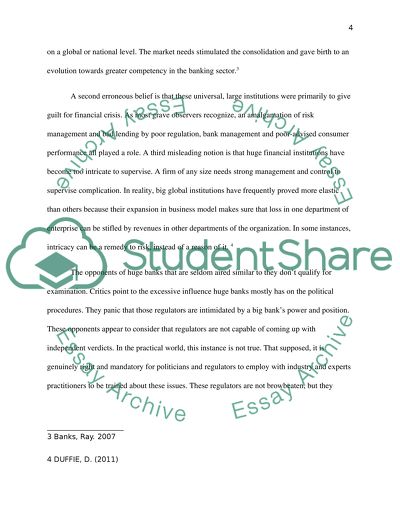Cite this document
(The Large Banks Should not Be Broken up because These Banks Are Assets Assignment, n.d.)
The Large Banks Should not Be Broken up because These Banks Are Assets Assignment. Retrieved from https://studentshare.org/macro-microeconomics/1610214-the-uk-government-is-right-to-listen-to-claims-that-large-banks-should-be-broken-up
The Large Banks Should not Be Broken up because These Banks Are Assets Assignment. Retrieved from https://studentshare.org/macro-microeconomics/1610214-the-uk-government-is-right-to-listen-to-claims-that-large-banks-should-be-broken-up
(The Large Banks Should Not Be Broken up Because These Banks Are Assets Assignment)
The Large Banks Should Not Be Broken up Because These Banks Are Assets Assignment. https://studentshare.org/macro-microeconomics/1610214-the-uk-government-is-right-to-listen-to-claims-that-large-banks-should-be-broken-up.
The Large Banks Should Not Be Broken up Because These Banks Are Assets Assignment. https://studentshare.org/macro-microeconomics/1610214-the-uk-government-is-right-to-listen-to-claims-that-large-banks-should-be-broken-up.
“The Large Banks Should Not Be Broken up Because These Banks Are Assets Assignment”, n.d. https://studentshare.org/macro-microeconomics/1610214-the-uk-government-is-right-to-listen-to-claims-that-large-banks-should-be-broken-up.


